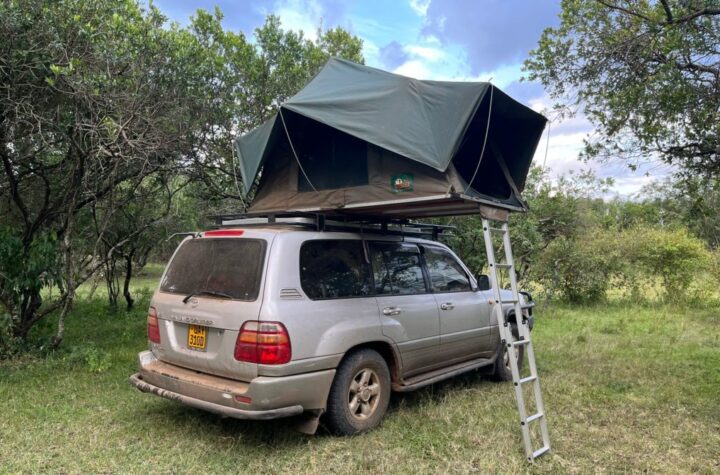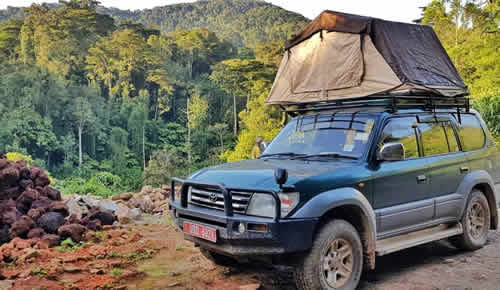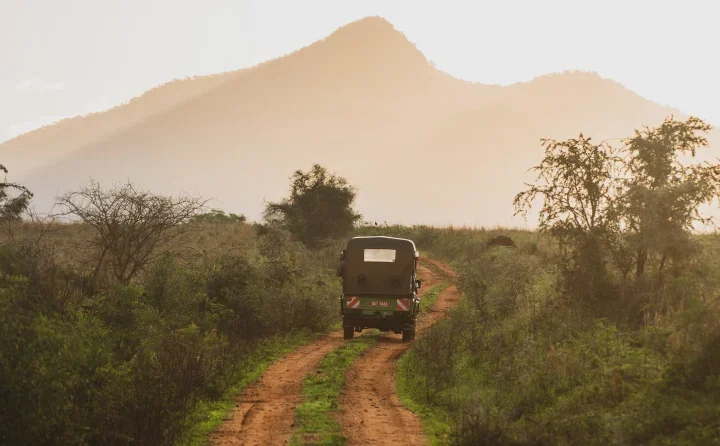
When planning a self-drive safari in Uganda this season, understanding car rental insurance is crucial for a worry-free journey. Whether you’re exploring the scenic routes to Bwindi Impenetrable Forest or navigating Kampala’s bustling streets, proper insurance coverage protects you from unexpected financial burdens and ensures peace of mind throughout your trip.
Legal Requirements for Car Rental Insurance in Uganda
Legally, all rental cars in Uganda must be comprehensively insured, making it mandatory for rental companies to provide basic coverage with every vehicle. This legal requirement ensures that every rental car on Ugandan roads meets minimum insurance standards, protecting both renters and third parties.
However, the extent and quality of coverage can vary significantly between rental companies. It is always wise to double-check with the car rental agency whether their cars are comprehensively covered and understand exactly what their insurance policies include.

Types of Car Rental Insurance Available
Comprehensive Insurance Coverage
A motor comprehensive insurance policy is an extensive motor insurance cover that protects the Insured against damages to their vehicle as a result of accident, fire, and loss of vehicle following theft. This is the gold standard of car rental insurance in Uganda and typically includes:
Vehicle Damage Protection
- Collision damage from accidents
- Fire damage to the vehicle
- Theft and attempted theft coverage
- Vandalism and malicious damage
- Natural disaster protection (storms, floods)
Enhanced Coverage Features
- Cover to safeguard your vehicle/s against loss or accidental damage, fire, theft (including riot and strikes), and third-party liabilities anywhere in East Africa
- Cross-border coverage for regional travel
- Unlimited mileage protection
- Emergency roadside assistance
Third-Party Insurance
Third-party insurance represents the minimum legal requirement and covers damages to other people and property, but offers limited protection for the rental vehicle itself.
Third-Party Only (TPO) Third Party Only (TPO) – covers the insured from liability arising out of damage to third-party persons and injuries caused by the insured vehicle. This basic coverage includes:
- Bodily injury to other people
- Death compensation for third parties
- Property damage to other vehicles
Third-Party, Fire & Theft (TP&T) Third Party, Fire & Theft (TP&FT) – covers third-party liability and provides protection against fire and theft of your vehicle. This mid-level option adds:
- Fire damage protection
- Theft coverage for the rental vehicle
- All standard third-party protections
Coverage Limitations and Exclusions
What’s NOT Covered by Standard Insurance The car Insurance Policy covers Only the Vehicle and does not offer personal life insurance for the occupants, meaning renters should consider:
- Personal accident insurance for occupants
- Medical expenses for injuries
- Personal belongings and luggage
- Loss of personal items from the vehicle
Financial Limitations The statutory MTP insurance only covers bodily injury and or death up to a limit of Shs1m per person and Shs10m in aggregate in the event that many people are injured in the accident. These coverage limits may be inadequate for serious accidents, highlighting the importance of comprehensive coverage.
Cost Factors Affecting Insurance Premiums
Coverage Type Impact on Pricing
Insurance coverage is another factor that can affect rental costs. Comprehensive insurance, which covers damage to the vehicle, is typically more expensive than basic liability insurance. When budgeting for your rental, consider:
Budget Planning Considerations
- Comprehensive coverage: Higher daily rate but extensive protection
- Basic third-party: Lower daily cost but significant financial risk
- Some apparently cheap rates can become expensive once mandatory insurance, additional driver fees, and other extras are included
All-Inclusive Insurance Packages
In 2025, several Uganda car rental companies have begun offering all-inclusive packages that bundle insurance with other services, potentially offering better value for comprehensive coverage.
What to Look for in Car Rental Insurance
Essential Coverage Components
Vehicle Protection
- Full collision damage waiver
- Comprehensive theft protection
- Fire and natural disaster coverage
- Vandalism and malicious damage protection
Liability Coverage
- Cover for third parties. In addition to the driver or rider, this insurance covers passengers and other people affected by an accident
- Property damage liability
- Adequate coverage limits for serious accidents
Additional Benefits
- 24/7 emergency assistance
- Breakdown and recovery services
- Replacement vehicle provision
- Cross-border travel authorization
Questions to Ask Your Rental Company
Coverage Verification
- Is the vehicle comprehensively insured?
- What are the exact coverage limits and exclusions?
- Does insurance cover cross-border travel to Kenya, Tanzania, or Rwanda?
- What is the excess/deductible amount for claims?
- Are additional drivers covered under the policy?
Claims Process
- What documentation is required for insurance claims?
- How quickly are claims processed?
- What is the procedure for accidents or theft?
- Is there 24/7 support for emergencies?
Understanding Insurance Excess and Deductibles
Most car rental insurance policies in Uganda include an excess amount – the sum you’ll pay before insurance coverage begins. This can range from $200 to $1,000 depending on the vehicle type and coverage level. Some rental companies offer excess reduction options for an additional daily fee.
Special Considerations for Different Trip Types
Safari and National Park Adventures
When planning visits to Uganda’s national parks, ensure your insurance covers:
- Off-road driving in designated areas
- Remote location breakdowns
- Wildlife-related vehicle damage
- Extended emergency assistance in remote areas
Cross-Border Travel
If planning to visit neighboring countries, verify that your insurance provides:
- Valid coverage in Kenya, Tanzania, and Rwanda
- Proper documentation for border crossings
- Emergency assistance across borders
- Compliance with different countries’ insurance requirements
Urban vs. Rural Driving
Different environments present unique risks:
- Urban areas: Higher theft risk, traffic accidents, parking damage
- Rural areas: Road condition challenges, limited emergency services, wildlife encounters
Making an Insurance Claim
Immediate Steps After an Incident
- Ensure Safety: Move to a safe location and check for injuries
- Contact Authorities: Report serious accidents to police immediately
- Notify Rental Company: Contact your rental company’s emergency line
- Document Everything: Take photos, collect witness information, obtain police reports
- Avoid Admissions: Don’t admit fault or liability at the scene
Required Documentation
- Valid driving license and rental agreement
- Police report (for accidents or theft)
- Photographic evidence of damage
- Witness statements if available
- Medical reports for injury claims
Tips for Choosing the Right Insurance Coverage
Assess Your Risk Tolerance
Consider your driving experience, planned destinations, and financial capacity to handle potential losses. Comprehensive coverage offers peace of mind but comes at a higher cost.
Compare Total Costs
Renters should carefully consider their insurance needs and budget accordingly. Calculate the total trip cost including insurance rather than focusing solely on daily rental rates.
Read the Fine Print
Understand policy exclusions, coverage limits, and claim procedures before signing your rental agreement. Ask for clarification on any unclear terms.
Common Insurance Mistakes to Avoid
Inadequate Coverage Selection Unlike comprehensive insurance, third-party insurance specifically covers damage to other vehicles or property and does not protect your own car. Choosing minimal coverage can result in significant out-of-pocket expenses.
Failure to Verify Coverage Always confirm that insurance coverage matches what was promised and includes your specific travel plans and destinations.
Ignoring Excess Amounts Understand your financial responsibility for the excess/deductible amount, which remains your liability even with comprehensive coverage.
The Future of Car Rental Insurance in Uganda
Uganda’s car rental insurance landscape continues evolving with improved coverage options, better customer service, and more competitive pricing. Rental companies are increasingly offering transparent, all-inclusive packages that simplify the insurance selection process while providing comprehensive protection.
Making the Right Choice
Car rental insurance in Uganda requires careful consideration of your specific needs, risk tolerance, and budget. While comprehensive coverage costs more upfront, it provides invaluable protection against the financial risks associated with vehicle damage, theft, or third-party liability claims.
Remember that the cheapest option isn’t always the most economical when considering potential out-of-pocket expenses from inadequate coverage. Invest in appropriate insurance protection to ensure your Ugandan adventure remains memorable for all the right reasons.
For expert guidance on selecting the right insurance coverage for your specific travel needs, contact Uganda Car Rental Booking. Our experienced team can help you navigate insurance options and ensure you’re properly protected throughout your journey.
Are you planning to rent a car for self drive in Uganda- simply email to [email protected] or call us now on +256-700135510 to speak with the reservations team.




More Stories
The Rise of Locally Modified Tourist Vehicles In Uganda
Gorilla Trekking Transport: The Best Car Hire Options
One-Way Car Rental in Uganda: Explore Without Doubling Back